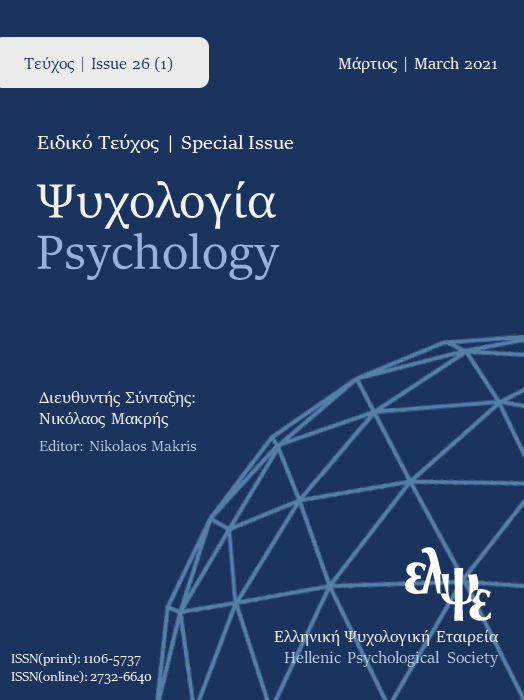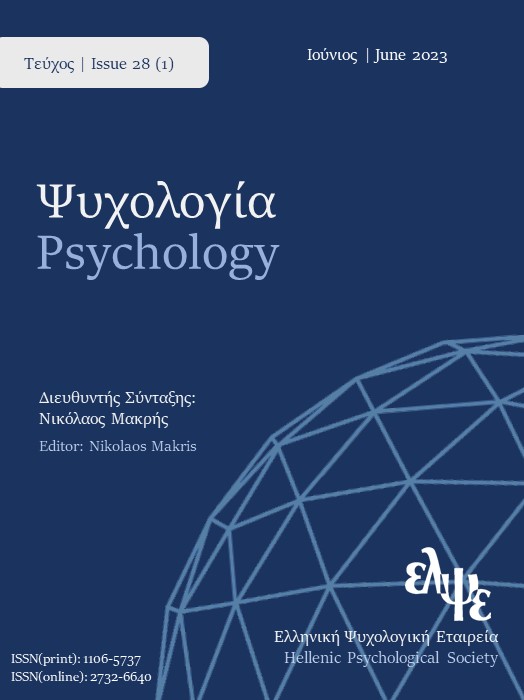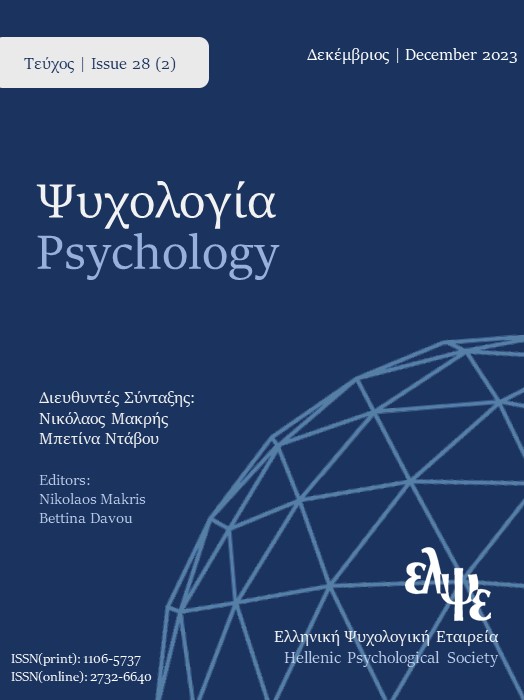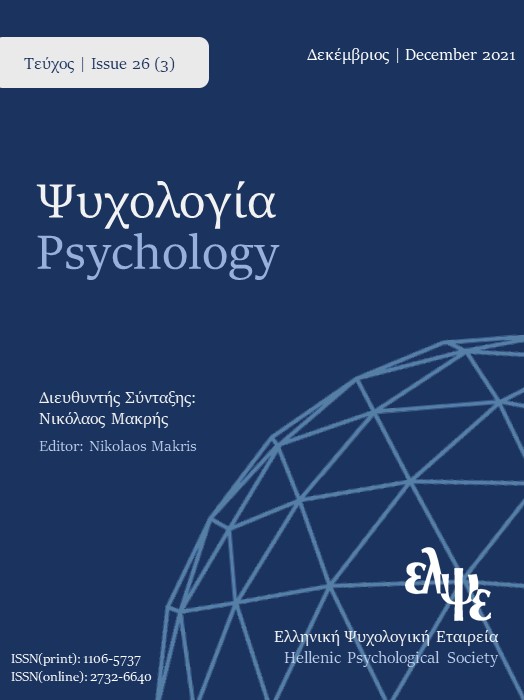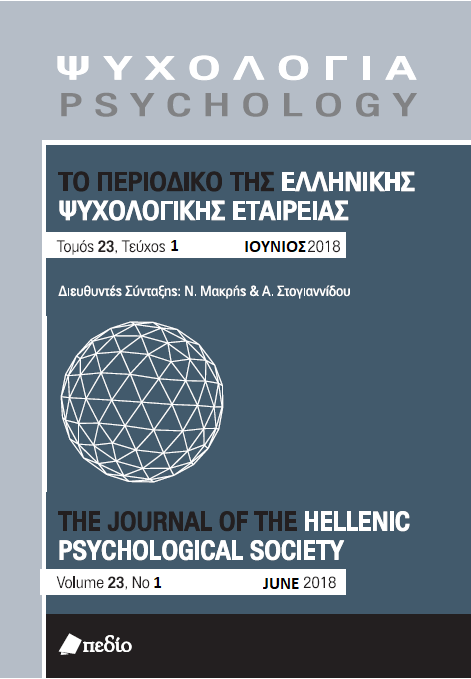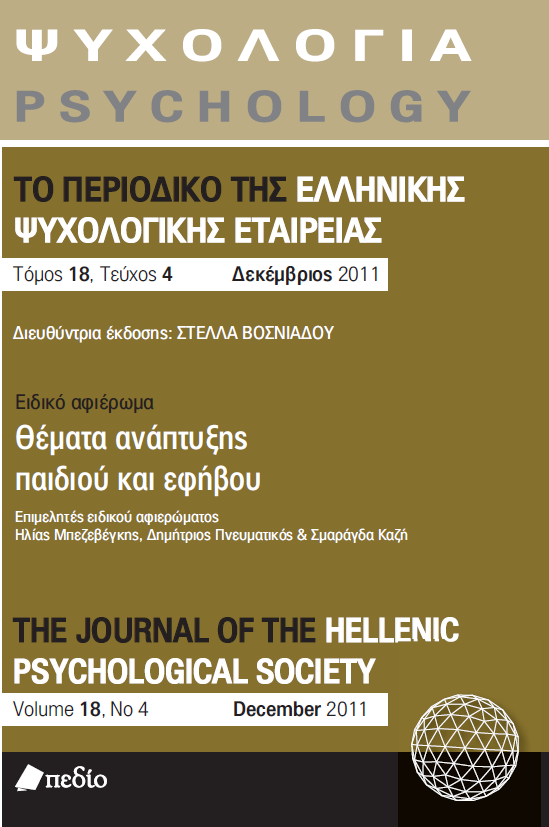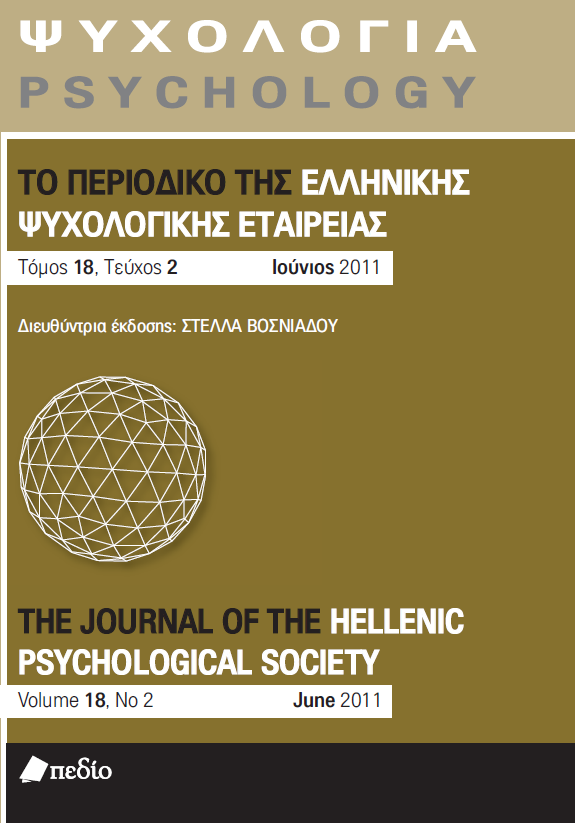Metacognitive Reading Strategies: Greek adaptation of the MARSI-(GR) and a comparative study of adolescent students with and without special learning difficulties
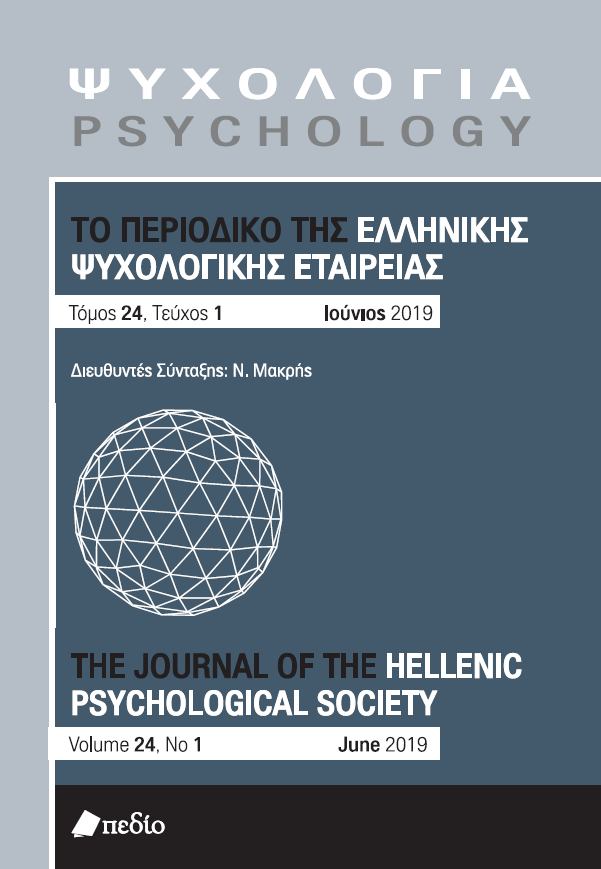
Abstract
Strategies Inventory (MARSI) in the Greek language. MARSI was designed to
evaluate the metacognitive awareness and the perceived use of school and
academic content reading strategies by students. The tool measures three subscales: General strategies, problem-solving strategies, and support reading strategies. The present study examined the factorial structure and the psychometric properties of the Greek version of MARSI revealing good internal consistency and testretest reliability. The use of MARSI showed that the Greek students with and without learning difficulties use metacognitive reading strategies, but they score low in support reading strategies.
Article Details
- How to Cite
-
Κουλιανού Μ., Ρούσσος Π., & Σαμαρτζή Σ. (2019). Metacognitive Reading Strategies: Greek adaptation of the MARSI-(GR) and a comparative study of adolescent students with and without special learning difficulties. Psychology: The Journal of the Hellenic Psychological Society, 24(1), 138–156. https://doi.org/10.12681/psy_hps.22391
- Issue
- Vol. 24 No. 1 (2019)
- Section
- RESEARCH PAPERS

This work is licensed under a Creative Commons Attribution-ShareAlike 4.0 International License.
The journal PSYCHOLOGY adopts a Platinum open-access policy. Submission, processing or publication costs are waived by the Hellenic Psychological Society. Papers published in the journal PSYCHOLOGY are licensed under a 'Creative Commons Attribution-ShareAlike 4.0 International' licence. The authors reserve the copyright of their work and grant the journal the right of its first publication. Third-party licensees are allowed to use the published paper immediately after publication as they wish, provided they retain the defined by the license copyright formalities, regarding the reference to its author(s) and its initial publication in the journal PSYCHOLOGY. Moreover, any adjusted work should be shared under the same reuse rights, so with the same CC license.



